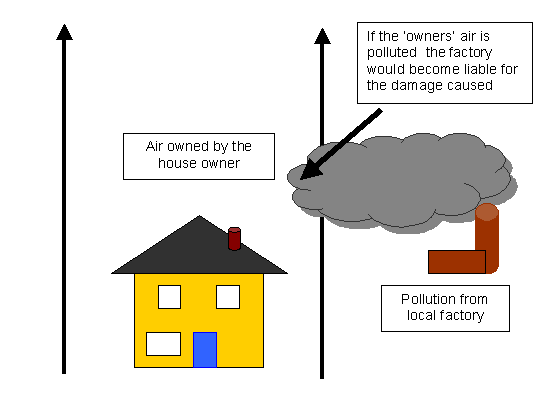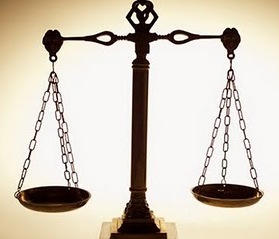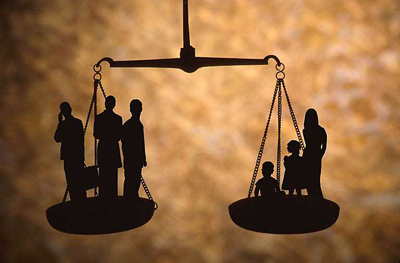
 Ancient
Ancient
The
GREEK word DIKE or dike meaning compensatory; inherently meaning
the process by which in transgressing some limitation amends is made or must
be made for social comity -- or a level of polite discourse.
From
Homeric to Classical and Platonic Greece the term originated, matured and
created a debate.
 Mediaeval
Mediaeval
St. Augustine and
the City of God – Civitas Dei
Natural law and
St. Thomas Aquinas.
Hugo Grotius and
"the Law of Nations" .
 Modern
Modern
Galileo, Hobbes
and Newton
John Locke and
property
Jean Jacques Rousseau
and the social will
Denis Diderot,
universality of knowledge and "sensibilite'"
Thomas
Paine
Corporate
responsibility.

Origins
of the idea | Examples to debate
| Jacob Riis' photographs | Dates in
history | Readings | related words
| course to know
Currently
The
double "P", double "C" game

Pollution is any
substance whose toxicity or potential
excess can interfere with life
sustaining processes, such as ecosystem
services, or biological renewal and geochemical
cycles, or may pose risks to human
health.


Photographed at the
end of the 19th century by Jacob Riis, scenes like this in Manhattan are said
to have shamed people into eradicating slums in America's premier and largest
city.

Origins
of the idea
| Examples to debate | Jacob Riis'
photographs | Dates in history | Readings
| related words |
course to know

Analogies can
help us think differently about familiar things; and reconsider parts we overlook.
Steamship
-- a spacious means of ocean transport on which large numbers,
in different classes, travel together from point to point on their way to
a common destination.
By
analogy the steamship (lifeboat ethics) is the earth -- one planet indivisible.
"Titanic"
-- was a ship that sunk in 1905 with many of its crew and passengers on board.
Thus,
the
titanic effect is that we assume security or safety when in
reality every step we take exposes us to greater risk of disaster, or needless
(preventable) loss of life.
Life
boats -- there were not a sufficient number of life boats on the Titanic.
The life boats were not
immediately loaded and dispatched since the assumption was that the ship could
not sink.
The signals of disaster
are by analogy, ignored, because of other -- often overriding concepts of
circumstances.
„
Spaceship analogy: R. Buckminster Fuller (1963)
was that we are all passengers on the same small craft traveling safely
through harsh space only so long as we take care to provision the ship and
maintain its life-support systems.
„
"X-Files" as the unaccounted for
parts of reality.
„ Hale Bop comet: a celestial event seen in
the sky that some people took as a
sign of the world's ending.
Next

Origins
of the idea
| Examples to debate | Jacob Riis'
photographs | Dates in history | Readings
| related words |
course to know

Sample related
concepts to justice:
inequality of
wealth (savings & capital) vs. income (labor, wages,
dividends, earnings)
equal
opportunity
homelessness
legal proscription
& protection vs moral indignity
Thoreau
All
important dates in the past.

Origins
of the idea
| Examples to debate | Jacob Riis'
photographs | Dates in history | Readings
| related words |
course to know

 Farm
Workers.
Farm
Workers.
Global
Warming.
Water
for some or all?
Education
as a dream of access to knowledge for all.
 Readings
Readings

Origins
of the idea
| Examples to debate | Jacob Riis'
photographs | Dates in history | Readings
| related words |
course to know

justice

"j
euż st __ iss"
Two:
First ____ Second
two
syllables
question
noun
1. reasonable behavior or respectable
treatment: a concern for fairness, peace, and genuine respect for all other
people's lives and liberties.
„ the quality
of being fair and reasonable
: the justice of
this case.
„ The administration of the law or authority
in maintaining this legally assured status: a
tragic miscarriage of justice.
„ comity
-- considerate behavior of others
„ impartiality of
public treatment with respect to a person's condition
„ ( Justice) the personification of justice, usually a blindfolded woman
holding scales and a sword -- icon; the statue on top of the US Capitol
building in Washington D.C.
 Select the map
to enlarge and see per pupil spending in each US county.
Select the map
to enlarge and see per pupil spending in each US county.
2. a judge or magistrate, in particular a judge
of the supreme court of a country or state.
Next
A
question ?
What
image arises when you consider the meaning of these
PHRASES:
- To bring someone
to justice-- arrest someone for a crime and ensure that they are tried in
court.
- To do oneself
justice --perform as well as one is able to.
- To do someone/something
justice (or do justice to someone/something)
- To treat, or
represent with due fairness or appreciation that is due to any and all persons.
Why?
There
is an implication in these uses of the word justice of limitations, boundaries
or thresholds of accepted behavior.
The
Greeks had in mind during their golden age of
Athens that there were laws (NOMOS)
that enshrined the ideals of appropriate, fair and impartial behavior due
with respect to citizens and slaves alike for which people could be held accountable.
The
transgression of these boundaries, in terms of traditions, folkways, or mores,
had always entailed social ostracism or punishment that may include restitution.
As the law became established to assure the continuity
of transactions in a commercial culture, retribution and restitution became
part of the means by which those who broke the law would be asked to make
good on their mistakes.

Origins
of the idea
| Examples to debate | Jacob Riis'
photographs | Dates in history | Readings
| related words |
course to know

Historically
significant dates:

1531
able-bodied men are forbidden to beg in England
1770
Samuel Johnson's commentary on poverty
1786
Joseph Townsend's Dissertation on the Poor laws
1798
Thomas Malthus "Essay on Population"
1846
F. M. Dostoevsky's novel Poor Folk
1872
Henry George, reformer, Progress & Poverty
1892
Coxey's Army (indigent Civil War veterans) marches on Washington
1933
Upton Sinclair's campaign to "End Poverty in California" called EPIC
1936
James Agee & Walker Evans' Alabama
photo essay
1967
Houston "race" riot over garbage dump death
1968
Martin Luther King's memoriam – "Poor People's March" on Washington D. C.
2008
Barak Obama elected US president, the first person of African & American
ancestry

Origins
of the idea
| Examples to debate | Jacob Riis'
photographs | Dates in history | Readings
| related words |
course to know


 Susan
Sontag, Regarding
the Pain of Others
Susan
Sontag, Regarding
the Pain of Others
This was her last book,
published in 2003 before her death in 2004.
Neil Postman, Amusing
Ourselves to Death.
Stephen
J. Rose
Kathleen
Parker on what constitutes news in the age of the Internet: 8-1-08
Let
Us Now Praise Famous Men, Walker Evans and James Agee, 1941.
Overseas,
or Foreign Press a sampling
USA
print media, daily newspapers

Origins
of the idea
| Examples to debate | Jacob Riis'
photographs | Dates in history | Readings
| related words |
course to know
 Three contemporary
virtues are:
Three contemporary
virtues are:
Justice,
liberality, and mercy.
Taking
action

![]()
![]()









